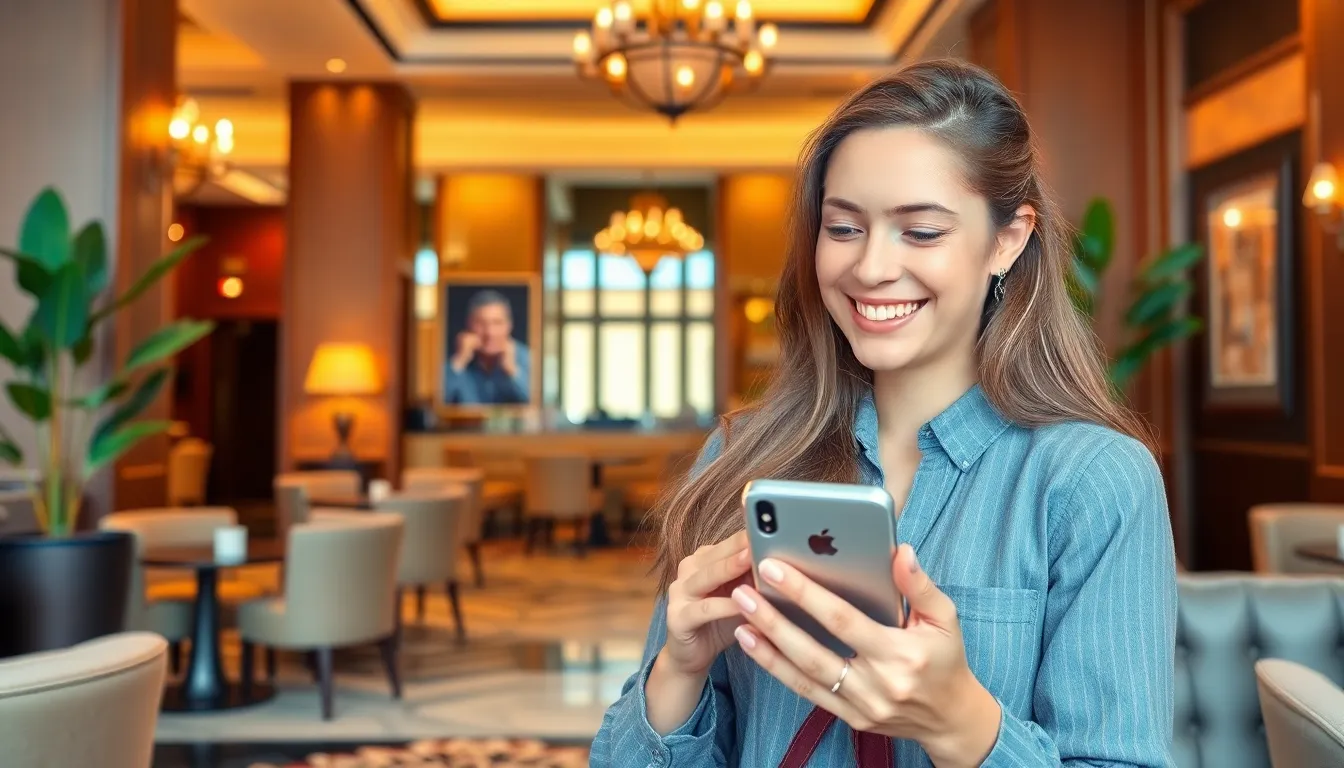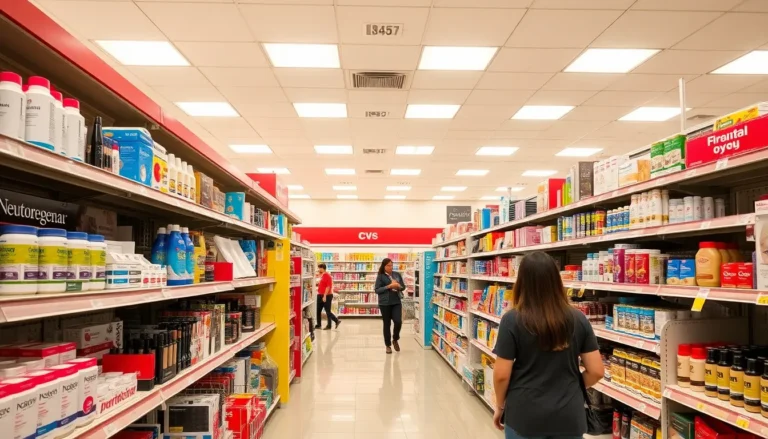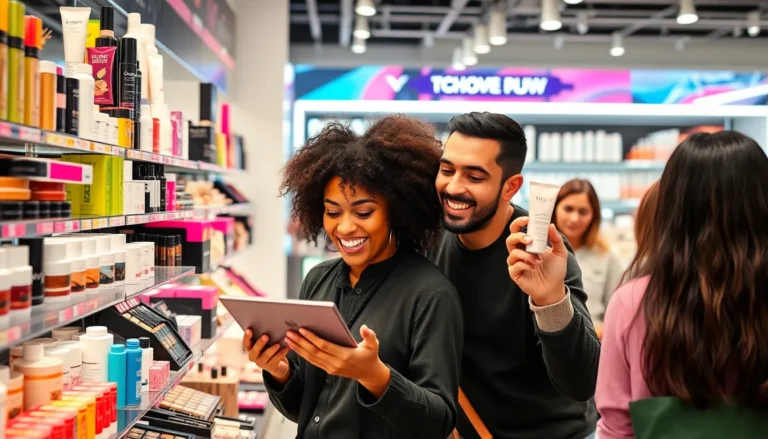In a world where every traveler has a smartphone glued to their hand, hotel social media marketing isn’t just a luxury—it’s a necessity. Picture this: a stunning photo of a sun-kissed pool, a mouthwatering dish from the hotel restaurant, or a cozy corner of a chic lobby. These aren’t just pretty pictures; they’re powerful tools that can turn casual scrollers into booked guests faster than you can say “room upgrade.”
Table of Contents
ToggleUnderstanding Hotel Social Media Marketing
Social media marketing plays a pivotal role in attracting guests to hotels. Engaging content can transform potential visitors into loyal customers by showcasing the unique experiences offered.
Importance of Social Media for Hotels
Visibility on social media platforms enhances brand awareness significantly. Engaged audiences generate organic referrals that drive traffic to hotel websites. Complementing promotional campaigns, social media fosters meaningful connections between hotels and guests. Analytics tools reveal audience preferences, enabling tailored communication strategies. Immediate customer feedback helps hotels improve services quickly. Authentic interactions build trust, influencing prospective guests’ decision-making processes. Sharing user-generated content showcases real experiences, appealing to potential visitors’ emotions.
Key Platforms for Hotel Marketing
Facebook remains a top choice for hotels, providing a wide audience reach. Instagram’s visual emphasis attracts guests through stunning imagery of accommodations and amenities. Twitter facilitates real-time updates and customer interaction, making it ideal for customer service. LinkedIn connects hotels with business travelers, allowing professional networking and partnerships. TikTok engages younger audiences through creative, short-form video content. Pinterest inspires future travel plans with visually appealing boards, driving referral traffic to hotel websites. Each platform contributes uniquely to expanding a hotel’s online presence and enhancing marketing efforts.
Creating a Social Media Strategy for Hotels


Developing a social media strategy is essential for hotels aiming to enhance their online presence. A well-structured plan ensures effective engagement and maximizes impact on target audiences.
Defining Your Target Audience
Identifying the target audience is crucial in creating tailored content. Hotels should segment audiences based on demographics such as age, travel preferences, and location. Many visitors prioritize unique experiences, while others focus on price and amenities. Understanding these differences helps in crafting specific messages that resonate. Moreover, utilizing analytics tools allows hotels to gather valuable data about their social media followers. This data provides insights into what content is most engaging. Establishing a clear target audience improves communication and boosts booking rates.
Setting Goals and Objectives
Establishing clear goals and objectives provides direction in social media marketing. Setting specific, measurable, attainable, relevant, and time-bound (SMART) goals ensures that hotels track their progress effectively. Examples of objectives might include increasing engagement rates by 20% within three months or achieving a certain number of bookings through social media channels. Evaluating performance through analytics tools enables ongoing adjustments to strategies. Focusing on brand awareness increases visibility, while targeted promotions enhance reservations. Creating a focused approach leads to better results and a stronger online presence.
Content Creation for Hotel Social Media
Creating engaging content for hotel social media channels requires a strategic approach that resonates with potential guests. By focusing on various content types, hotels can effectively showcase their offerings and enhance guest interaction.
Types of Content to Share
- Visuals: High-quality images and videos of hotel amenities attract attention and convey the atmosphere.
- User-generated content: Sharing guest photos creates authenticity and fosters community.
- Informational posts: Updates on promotions, events, or local attractions keep audiences informed and engaged.
- Behind-the-scenes content: Showcasing staff or daily operations personalizes the brand.
- Stories and reels: Short, engaging clips on platforms like Instagram capture instant interest.
Best Practices for Engagement
- Consistency: Regular posting maintains visibility and keeps the audience engaged.
- Interaction: Responding promptly to comments or messages builds relationships and trust.
- Hashtags: Utilizing relevant hashtags increases discoverability and connects with target audiences.
- Contests and giveaways: Hosting these generates excitement and encourages sharing among followers.
- Polls and questions: Engaging audiences through interactive posts fosters participation and feedback.
Measuring Success in Hotel Social Media Marketing
Measuring success in hotel social media marketing requires a keen focus on specific metrics. Evaluating performance ensures strategies align with business goals.
Key Performance Indicators (KPIs)
Key Performance Indicators serve as crucial metrics for evaluating social media efforts. Engagement rate captures the level of interactions users have with posts, reflecting content resonance. Reach indicates how many users have seen the hotel’s content, while impressions track the total number of times posts appear on users’ screens. Conversion rate measures the percentage of visitors who take desired actions, such as booking a room. Tracking follower growth highlights increases in audience size, showing brand popularity. These KPIs inform adjustments to enhance social media strategies and focus efforts on effective tactics.
Tools for Tracking and Analytics
Various tools help hotels track and analyze their social media performance. Google Analytics offers insights into website traffic from social media channels, showing user behavior and conversion paths. Hootsuite and Buffer enable post-scheduling while providing analytics on engagement metrics. Sprout Social presents detailed reports on audience demographics and engagement patterns. Facebook Insights and Instagram Analytics deliver platform-specific data, providing valuable information on post performance and audience interaction. Utilizing these tools allows hotels to tailor their marketing efforts effectively and optimize their social media presence.








